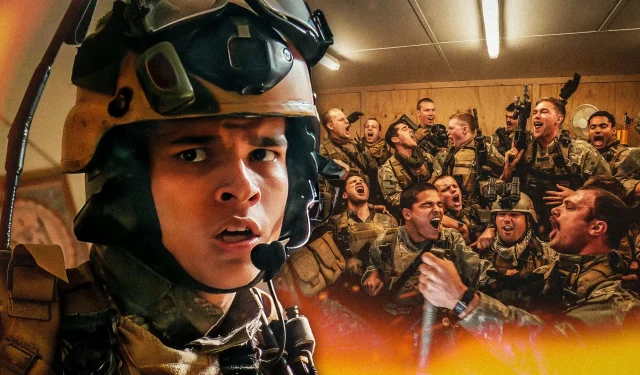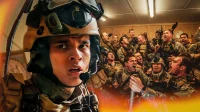Warfare stands out as a remarkable ensemble war film, largely due to its character-driven narrative based on actual events. Directed by the talented Alex Garland (known for Civil War and Ex Machina) in collaboration with co-director Ray Mendoza, a former Navy SEAL with experience as a military consultant on projects such as The Terminal List and Jurassic World, this film merges cinematic vision with authentic military insight. Garnering considerable acclaim, A24’s Warfare is celebrated for its immersive storytelling and intense tension.
Currently showing in theaters, Warfare features a stellar cast, including D’Pharaoh Woon-A-Tai (Reservation Dogs), Will Poulter (Guardians of the Galaxy Vol. 3), Cosmo Jarvis (Shogun), Joseph Quinn (Stranger Things), and Charles Melton (Riverdale). Together, they form one of the most compelling ensembles in recent war film history, delivering a gripping tale that rivals cinematic classics like Black Hawk Down and Zero Dark Thirty, both rooted in recent military conflicts.
Inspired by Real-Life Experiences
The Siege of Ramadi as a Backdrop
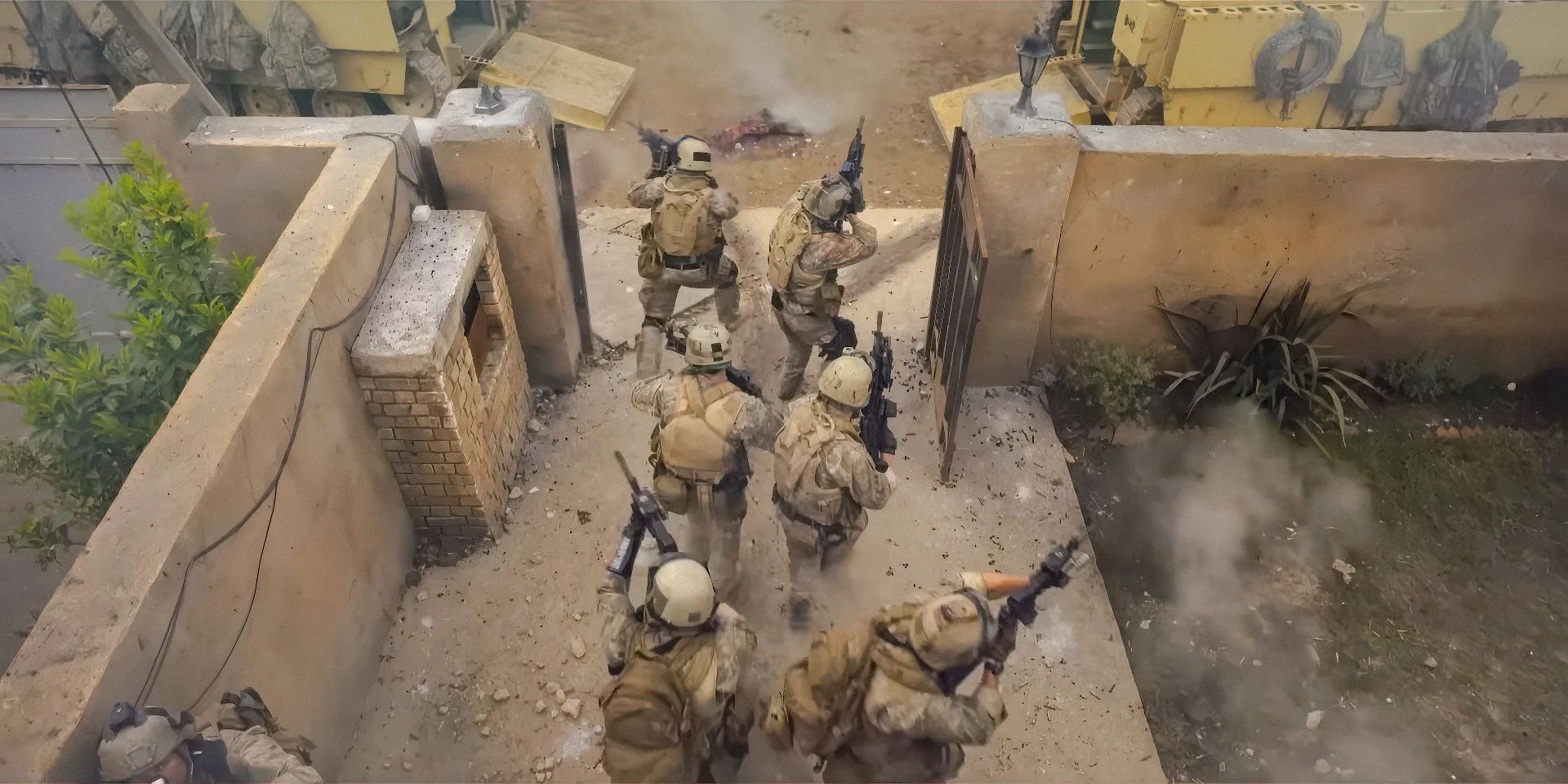
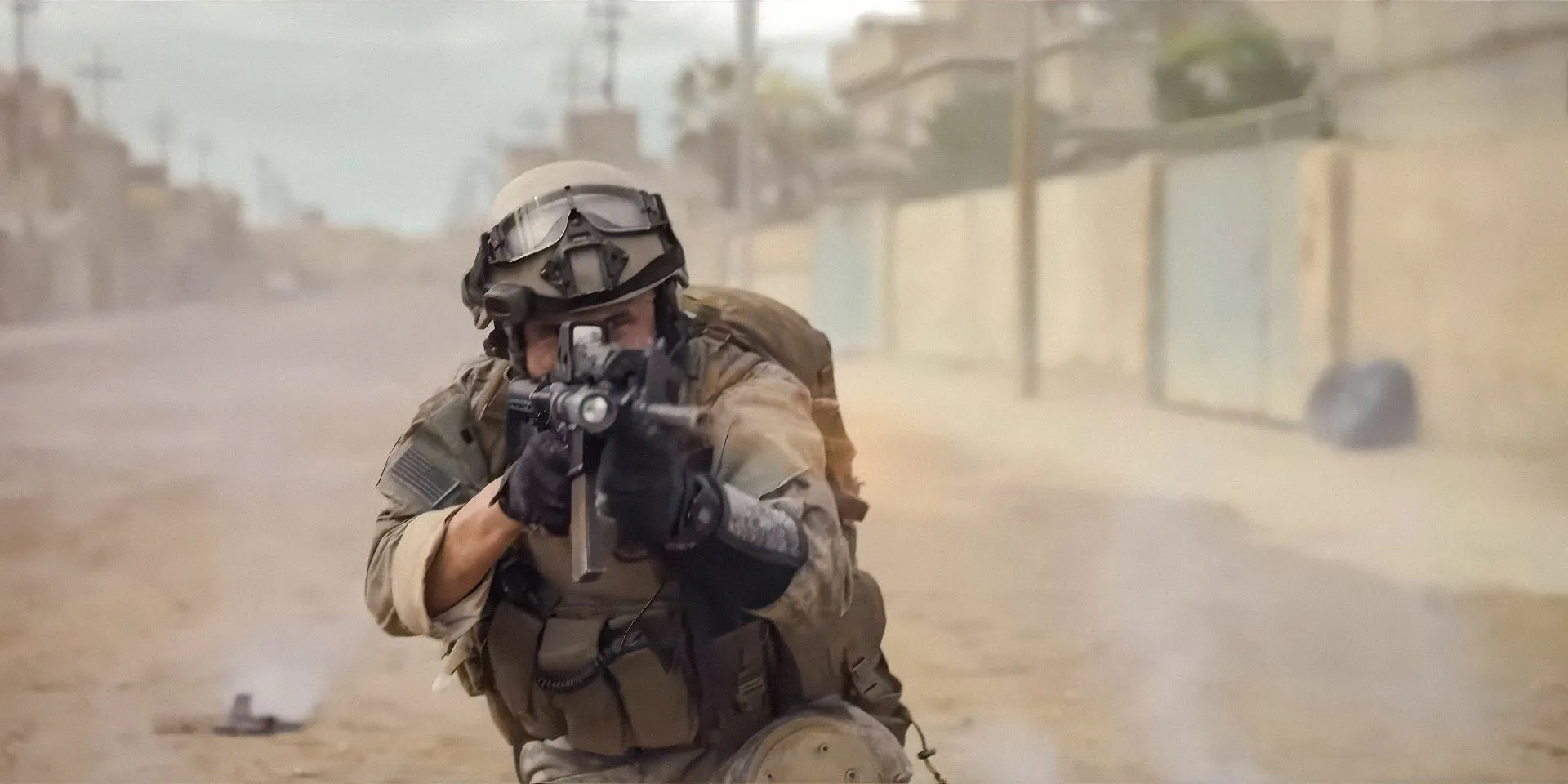
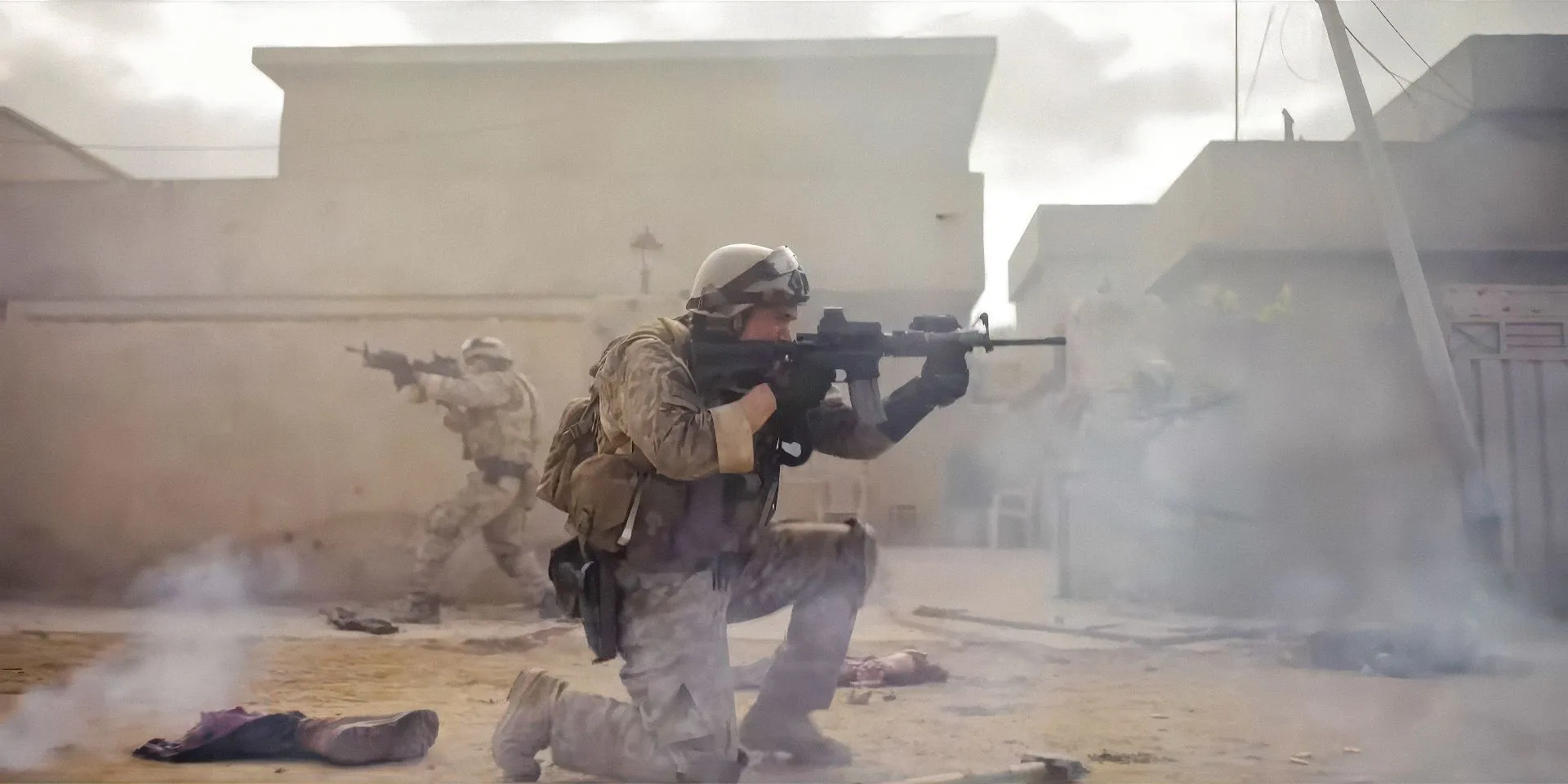
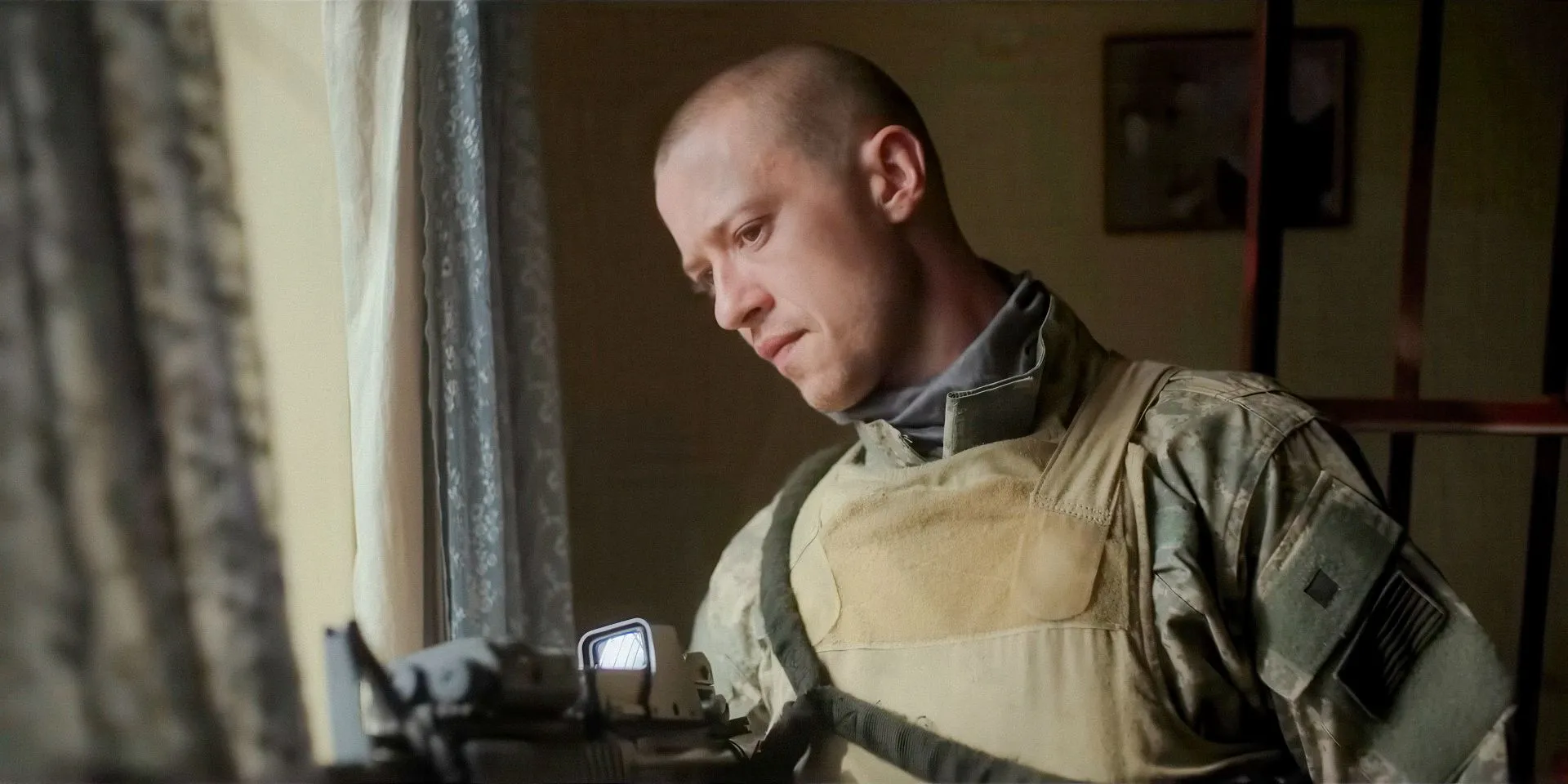
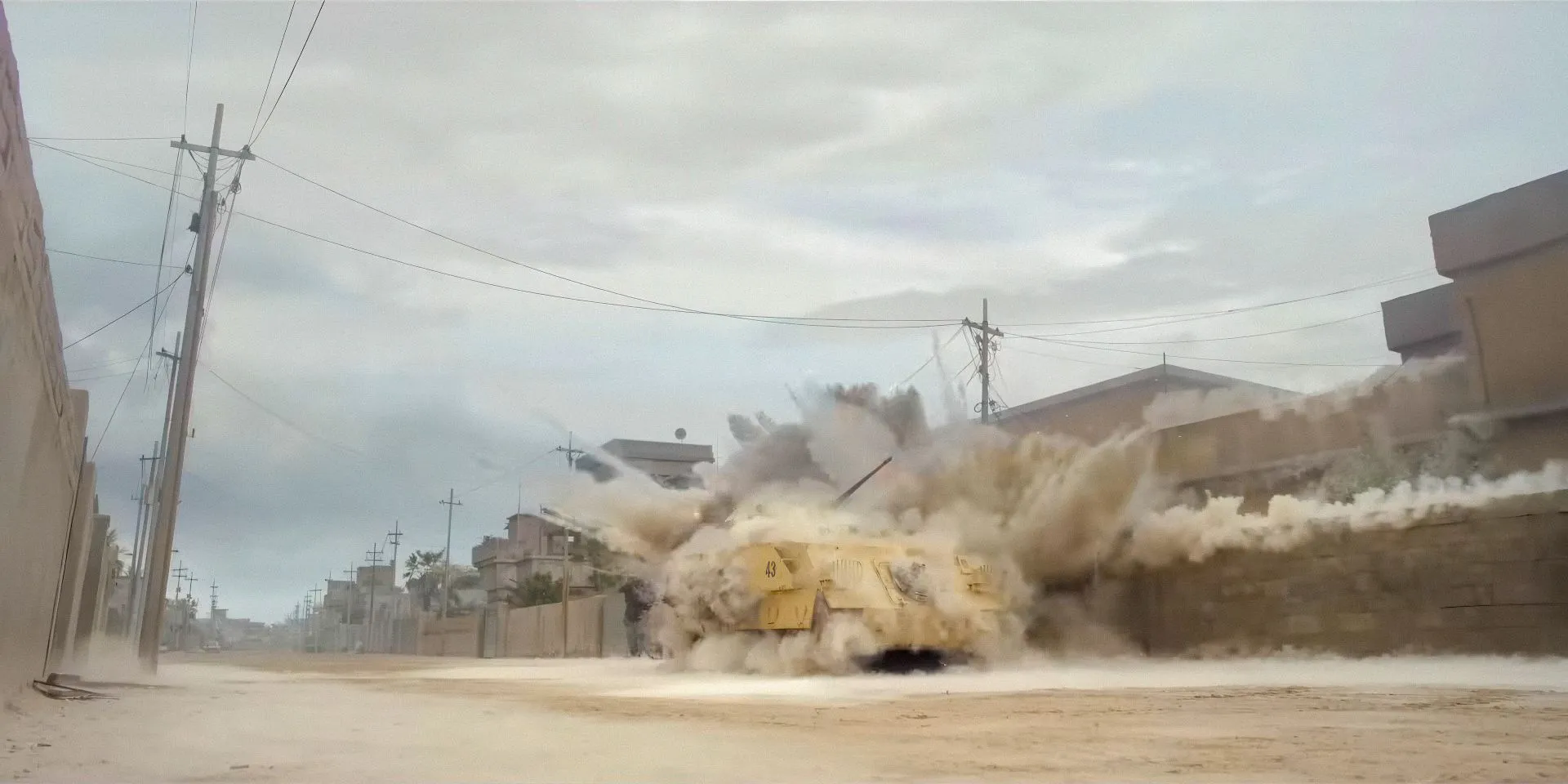
Ray Mendoza’s deep military background enriches the film, but notably, this marks his initial venture into sharing his personal story. In addition to his co-directing role, he collaborated with Garland on the screenplay, drawing upon his experiences from 2006, when his Navy SEAL team was tasked with a mission in an al-Qaeda-controlled area of Iraq. What should have been a surveillance operation quickly escalated into a fierce struggle for survival.
In the film, the character of Navy SEAL Elliot Smith, portrayed by Cosmo Jarvis, endures life-altering injuries during an explosive encounter. Despite surviving the ordeal, Smith loses his recollection of the events. Mendoza’s motivation for creating Warfare stemmed from a desire to illuminate the memory voids of Smith’s experience, resulting in a screenplay that strives for authenticity. To ensure accurate portrayals, the cast underwent rigorous training reminiscent of Navy SEAL boot camps, immersing themselves in military culture, complete with authentic jargon that conveys the harsh realities of combat.
Exploring an Uncommon Narrative
Focusing on Unsung Heroes
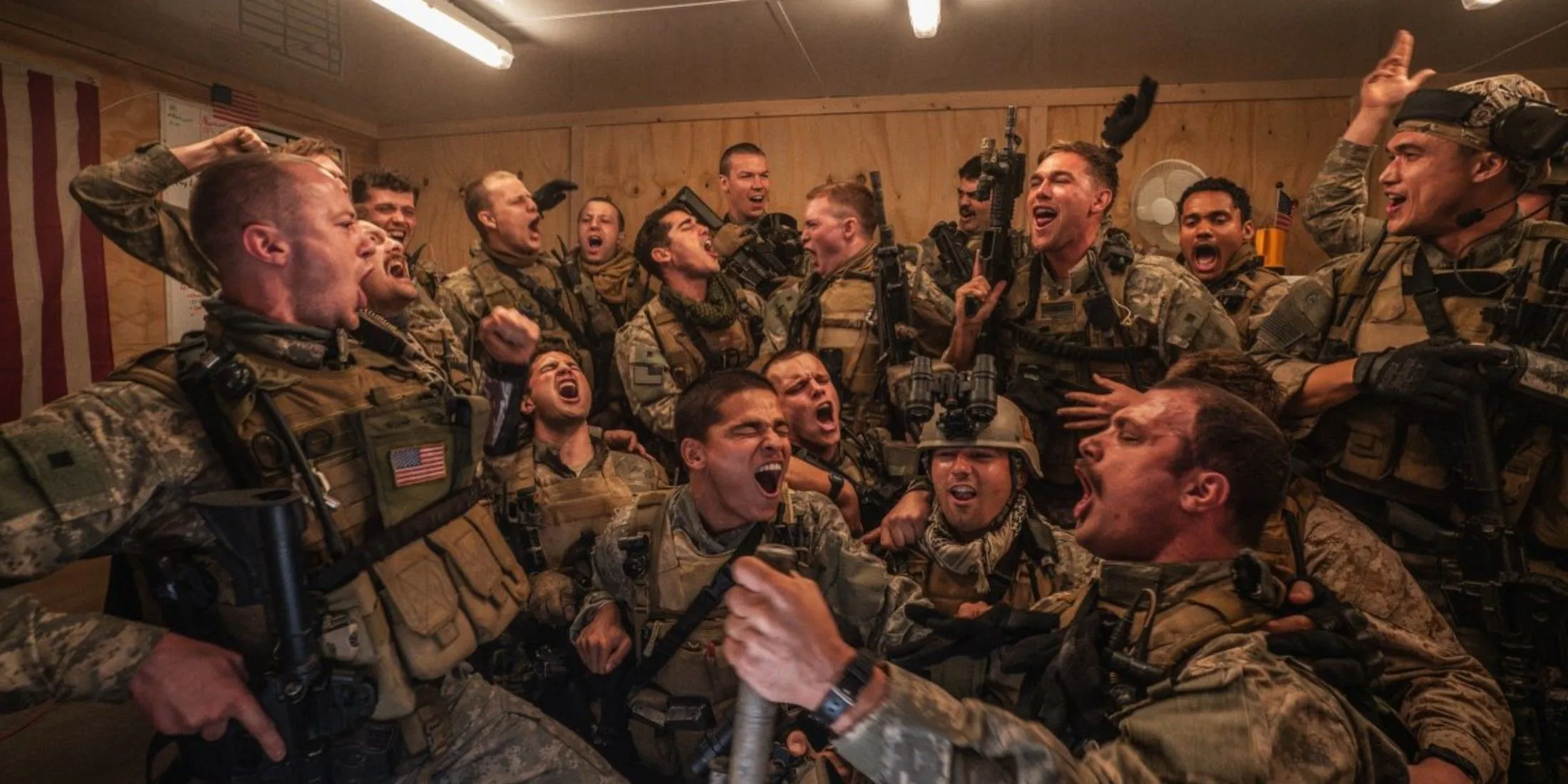
In contrast to historically prominent narratives like Zero Dark Thirty and Black Hawk Down, which are well-known due to their connection to significant geopolitical events, the story of Warfare remains relatively obscure. This film highlights the myriad untold stories of soldiers, emphasizing not just grand battles or celebrated war heroes but rather the raw, realistic journeys of lesser-known figures. While the title may not evoke widespread recognition, it signifies an important storytelling departure focusing on human experiences in combat.
Although some liberties may have been taken in dramatizing events for cinematic appeal, viewers can trust that Mendoza’s close involvement in the writing and directing will yield a narrative rooted in authentic experiences. The film serves not only as an engaging work but also as a platform for revealing more about the actual events it depicts, which may contribute to a broader understanding of military life.
The Impact of Realism on Warfare’s Narrative
Gritty Action Sequences Drive the Film
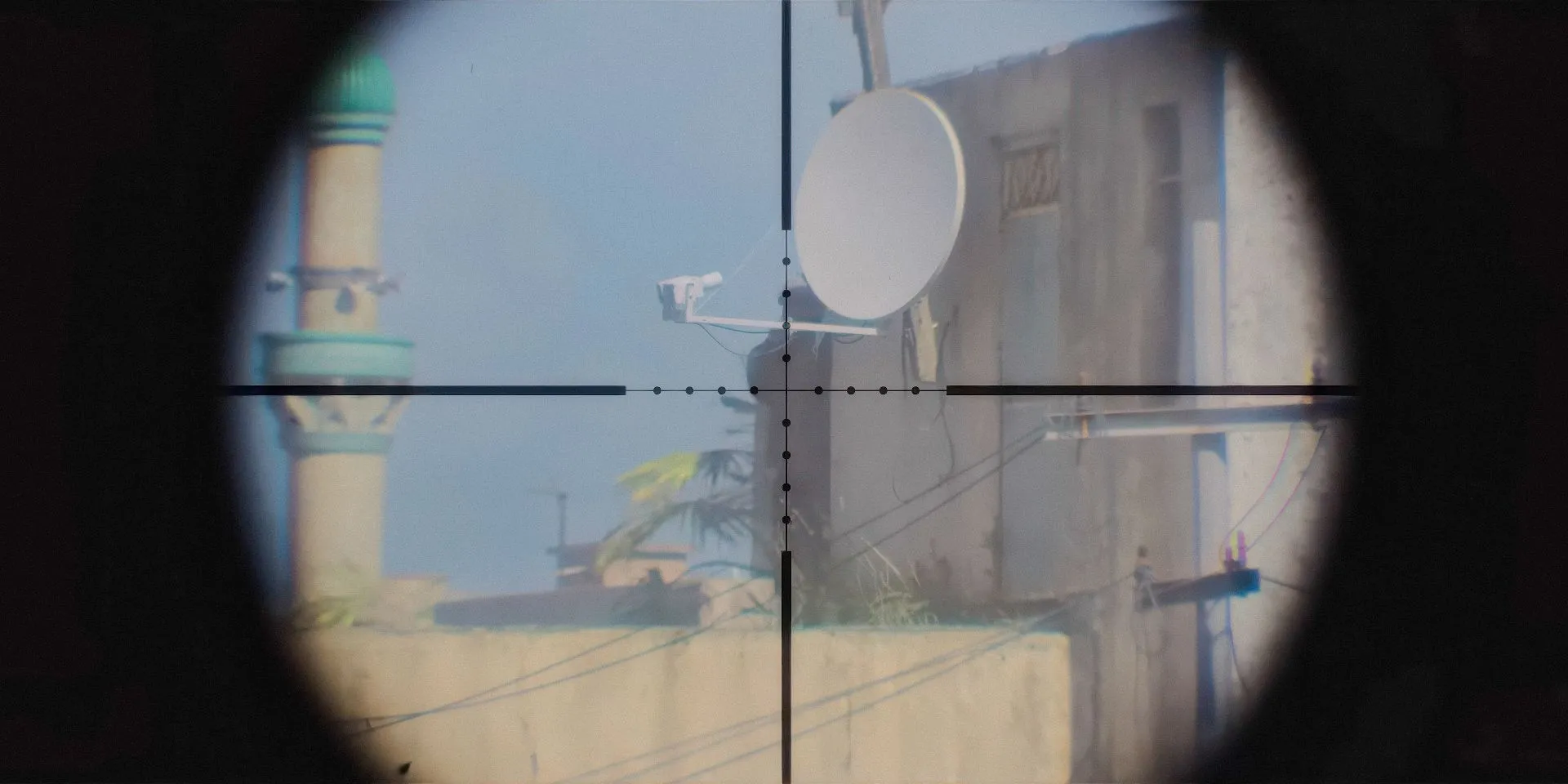
Image via A24
Known for his dedication to authenticity, Alex Garland’s previous works, including Civil War, showcase his commitment to realistic action sequences, further enhanced by Ray Mendoza’s involvement in stunt coordination. Warfare elevates this standard by delivering visceral military action that is neither typical nor fictionalized; instead, it portrays genuine experiences. Mendoza’s contributions blend expert knowledge of combat with emotional depth, culminating in a memorable cinematic experience.
While countless impactful war films have shaped cinema, Warfare distinguishes itself through its naturalistic portrayal of combat, character authenticity, and dialogue. Though it may not match the epic scope of classics like Saving Private Ryan or Apocalypse Now, the film’s dedication to realism establishes a stronger connection between the audience and its characters, fostering a deeper understanding of their struggles.
